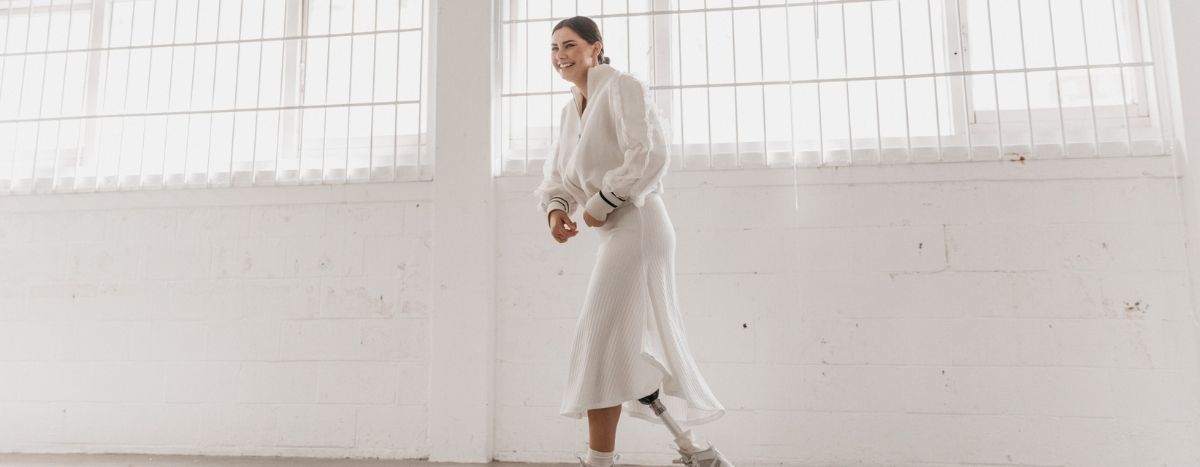Life Insurance
Lump sum payment if you were to pass away or are diagnosed with a terminal illness.
AIA Vitality NZ - 5 min read
15 December 2021
Social media is a powerful tool – something AIA Vitality Ambassador, influencer and body-positivity advocate Jess Quinn knows well. She tells us how social platforms have affected her life and details some strategies for using them positively.

I could never have imagined how much social media would impact my life. It’s opened so many opportunities for me that I never would’ve experienced without it – like signing up with modelling agencies or the chance to go on TV shows like Dancing with the Stars.
That said, social media can also be a complicated landscape to navigate. On one hand, there are so many tools that can help, inspire and fuel people to be better. On the other, there’s also so much negativity that contradicts this.
Sometimes, it’s hard for us to identify what’s potentially dangerous or harmful for us, simply due to social media's filtered and curated nature. What we think we’re viewing as reality can be toxic in nature, and it’s up to us to separate the two.
Before it became my career, I was on social media purely to share photos with family and friends. I fell into the space on a deeper level after a photoshoot image of mine went viral. I gained about 10,000 followers overnight and got a lot of media attention and interview requests. I remember being overwhelmed, caught up in these different positive and negative elements in this world of influencers.
I was tempted not to participate in this world, as many things didn’t agree with my morals – the curated nature made it so hard to tell what’s reflective of reality. But I realised I had a chance to change the landscape with my voice – I decided I was always going to be raw and real on social media (to the best of my ability).
Apart from the opportunities I’ve had, one of my favourite things about social media is how I can connect with people I wouldn’t have otherwise been able to. I’m able to share my story with people all over the world and I'm able to hear theirs. As much as social media can feel like a one-way street, there’s a human behind every account.
My life has also been impacted by the kind of content I’ve been exposed to online. There’s incredible stuff happening on social media in the diversity and inclusion space – we’re able to better understand lives different to ours. You can really get a bigger picture of human life through these platforms.
Not all of social media is great, though. I worry about the younger generation – especially young women – and the negative comments, cyber-bullying and social pressures they have to face.
I’ve had my fair share of negative comments, but I’ve never really been overly affected by what other people think (probably from learning to become okay in my skin because of my disability). I know who I am, and these comments don’t rock me. But that doesn’t mean others aren’t affected.
Sometimes, the way we comment isn’t done with negative intent – but it can still be harmful. People are so quick to comment about each other's bodies – younger girls in particular. They’ll often get photo comments like, "You're so beautiful,” which focuses all about appearance and not necessarily about the photo itself.
I’m mindful not to upload the ‘most perfect’ images to humanise myself – whether the lighting makes my freckles stand out more, or whether I have a pimple that day. Controlling what I post is a huge responsibility, and it’s something I’m very conscious of.
If something's not making you feel good, or if you leave a phone session not feeling good about yourself, then readdress who you're engaging with. There’s an unfollow button for a reason. If someone close to you inspires negative feelings, you can always mute them from your feed. The important thing is to tune into yourself and think about what makes you feel good, rather than just mindless scrolling.
Parents occasionally ask me about how their teenage children can have a healthy relationship with social media, and I always recommend following a diverse range of users. People from different cultures, different lifestyles, or people with disabilities. These platforms can be a great tool for us to expand and diversify what we know, even if it’s only a small percentage of someone’s life.
Since social media has become so all-encompassing, setting boundaries helps. I stay off social media on the weekends. I’ve found that having these parameters helps me step back into the real world and understand what’s important in life.
Article by: Jess Quinn
Jessica Quinn is an advocate for normalising 'different'. She champions this through her social media platform and her speaking engagements.
Disclaimer: The information in this article is general information only and is not intended as financial, medical, health, nutritional, tax or other advice. It does not take into account any individual’s personal situation or needs. You should consider obtaining professional advice from a financial adviser and/or tax specialist, or medical or health practitioner, in relation to your own circumstances and before acting on this information.